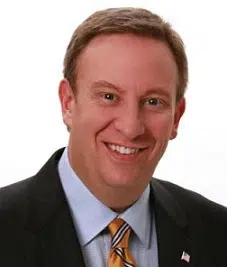(The Center Square) – Human trafficking happens in every community, and some are urging the public to see the signs.
“Our message is that it can happen to anyone, anywhere, and we can help,” said Carol Merna, CEO of the Center for the Prevention of Abuse in Peoria.
Human trafficking is the second highest-grossing crime in the world after drug dealing. CPFA provides victim services in 46 Illinois counties. The best way to combat human trafficking is to look for it and report it, Merna said.
Victims of human traffickers work in many different businesses including restaurants, massage parlors and agriculture. They work on construction crews and cleaning crews. People holding up signs asking for money may be trapped in a begging ring. Victims sell things door to door and work at carnivals.
The big tell is that human trafficking victims don’t get to keep the money that they work for. Violent criminals take their identification, hold them prisoner and exploit them.
Victims don’t raise their hands and say, “I’m a victim of human trafficking,” Merna said.
“I doubt they even have the words for that,” she said.
Members of the public need to be aware of how common human trafficking is. Keep an eye out for victims and report suspected trafficking cases, she said.
Some red flags for identifying victims: Do they have cuts and bruises or burn marks? Do they look hungry? Are they always with someone who does the talking for them? Are they in charge of their own money?
“It could be someone cleaning your hotel room. It could be someone renting a house down the street and using it as a brothel. Or it could be your child’s classmate,” Merna said.
Children are frequent victims. In the most heartbreaking cases, children are being trafficked by relatives, she said.
The Center for the Prevention of Abuse runs workshops that are geared to specific businesses to help them identify victims. Health care workers can be very effective at spotting victims, Merna said.
Merna warns individuals that they should never try to intervene with traffickers.
“Traffickers are extremely dangerous people who have no regard for someone else’s life,” Merna said.
Call 911 if someone is in danger. It is completely free and strictly confidential to call the Center for Prevention of Abuse Crisis Hotline to get advice if you suspect abuse.
Call 1-800-559-SAFE (7233) to get advice. Or call or text the National Human Trafficking Hotline 1-888-373-7888 or text 233733 day or night to alert authorities.
A friend of Merna’s told her about a sad-looking woman who was begging at an intersection in her hometown. She told Merna, “I’m going to pick her up and take her to the nearest police station.”
“Never do that,” Merna warned. “If you have a bad gut feeling about a person, take notice of where the person is, what they look like, what they are wearing, the time of day, who is with them.”







